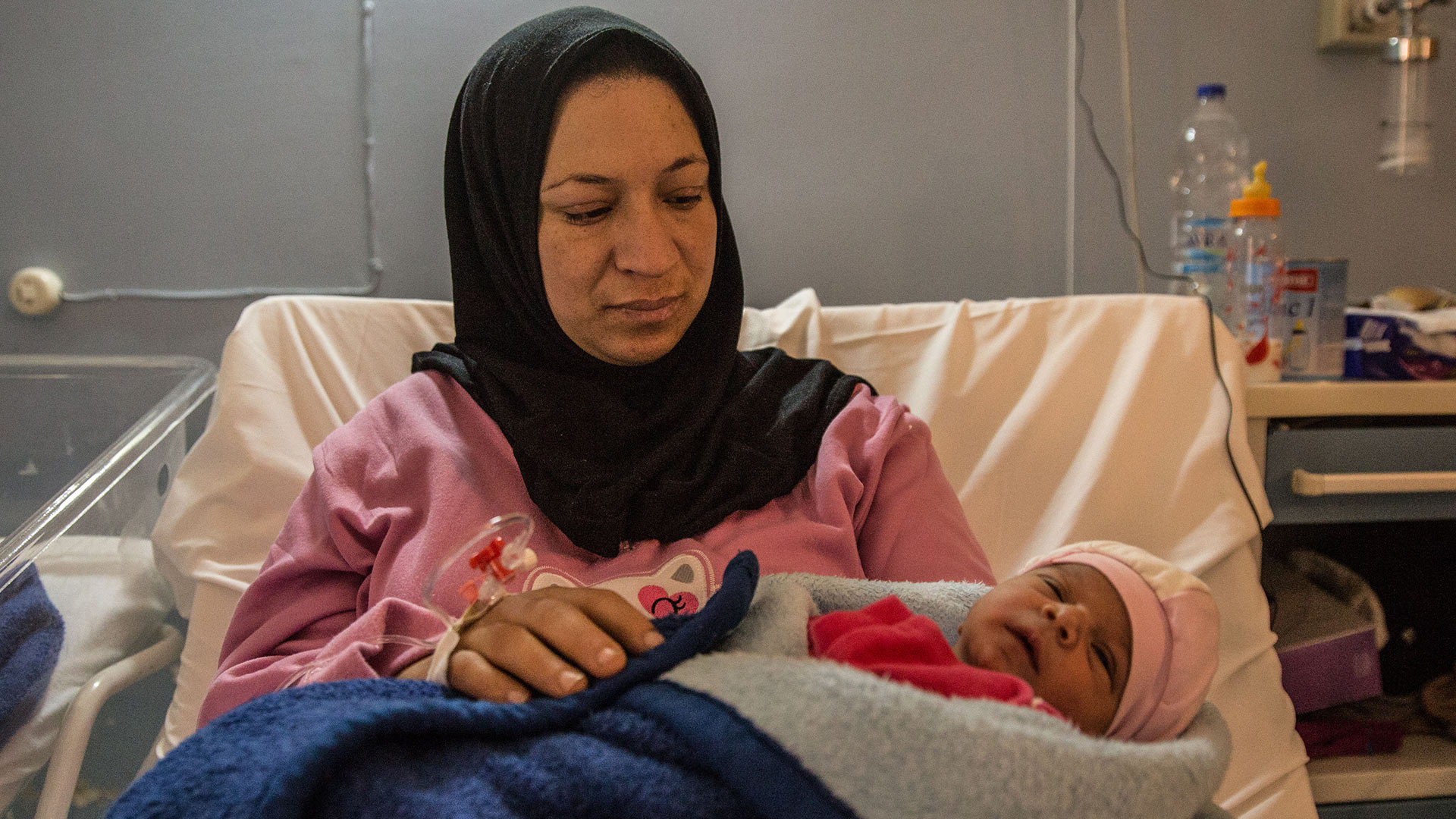Syrian government takes over summer youth camps to shelter Lebanese
Syrian government takes over summer youth camps to shelter Lebanese

ZABADANY, Syria, August 3 (UNHCR) - To cope with the continuing daily influx of thousands of Lebanese fleeing the conflict in their homeland, Syria has started using summer youth camps on the outskirts of the capital Damascus.
More than 140,000 Lebanese are believed to have crossed the border since the conflict started in mid-July. The daily number of arrivals has fallen from a peak of 20,000 two weeks ago to the current 5,000, but UNHCR monitors at border checkpoints say those crossing the border now are in worse shape.
The Lebanese arriving now are traumatised, scared and distressed. Some 90 percent of those crossing into Syria in the past two days have been women and children - some, including a baby, separated from their family - who were fleeing bombardment of their home areas. At the border they are given addresses of places to stay, including private homes, schools and other organised shelters.
UNHCR has been visiting the displaced in their current places of shelter on a daily basis in a bid to assess their needs. They have listed 39 shelters in Damascus alone, including 20 public schools. But the academic year starts in mid-September and so the government is looking for alternative accommodation.
The youth pioneer camps, where schoolchildren traditionally spend time during the summer holidays, are being pressed into action to ease the burden. "We were told to move some days ago. They picked us up with buses and brought us here," Fatima Taleb said at Zabadany camp, just north-west of Damascus.
She and her family are among 850 Lebanese moved to Zabadany. Taleb shares a small hut with her husband, two children and four other relatives. All arrivals at the summer camp are given a mattress, bed sheets, pillows, blankets, clothing and toiletries as well as prayer mats and scarves.
"For the moment it is good to be here," said Fatima. "The children have space to play and the Syrians are so generous. They supply us with everything we need. But we start getting worried and bored. We sit here and cannot do anything. We want to go back home as soon as possible."
Taleb and her family fled from their home near the northern Lebanese city of Baalbek by taxi just three days after the conflict began. "We had no time to pack," recalled Taleb, who said she was so traumatised that she cannot produce milk to feed her youngest child. Milk for infants, underwear and clothing are in high demand at the camp.
Ruba Yasim was directed to the Zabadany camp as soon as she crossed the border at Al Jdedeih earlier this week. She was in Beirut when her neighbourhood was attacked and escaped only hours before her apartment building was hit by bombs.
"I grabbed my baby and my little boy, ran to the house of my mother and we left," she said. "We took a taxi across Lebanon and stopped over a few times before arriving here. I did not even bring my documents with me, no money, nothing."
Camp managers are doing all they can to keep up the morale of Zabadany's new visitors. "We need some entertainment programmes for children and women now, we want to distract them from their grief. I feel so sorry for them, they lost everything," said Abdul Hamid, chairman of the administrative committee at Zabadany camp, which can accommodate 1,200 people.
"The Lebanese can stay here as long as they need to stay. For now, we keep on getting donations from citizens of Damascus. They bring us clothes, toiletries and food. We cook every day for all of them," Hamid said. "The refugees are considered our guests."
But standards in the summer camps vary greatly and some displaced Lebanese are not happy to move from schools to camps.
UNHCR, meanwhile, is opening new offices in the Syrian cities of Aleppo, Homs and Tartus to step up border monitoring, boost its support to Lebanon and offer greater assistance to the tens of thousands of Lebanese in the country. UNHCR staff were to travel Thursday to southern Syria on an assessment mission in the Dara area, where Lebanese and Palestinians have arrived.
In a separate development, the Syrian government has decided to let Iraqi refugees crossing the border from Lebanon to stay in the country longer. The authorities had previously said the Iraqis would only be given a 48-hour transit visa, but agreed to give the refugees three-month visas following representation from UNHCR.
By Annette Rehrl in Zabadany, Syria









